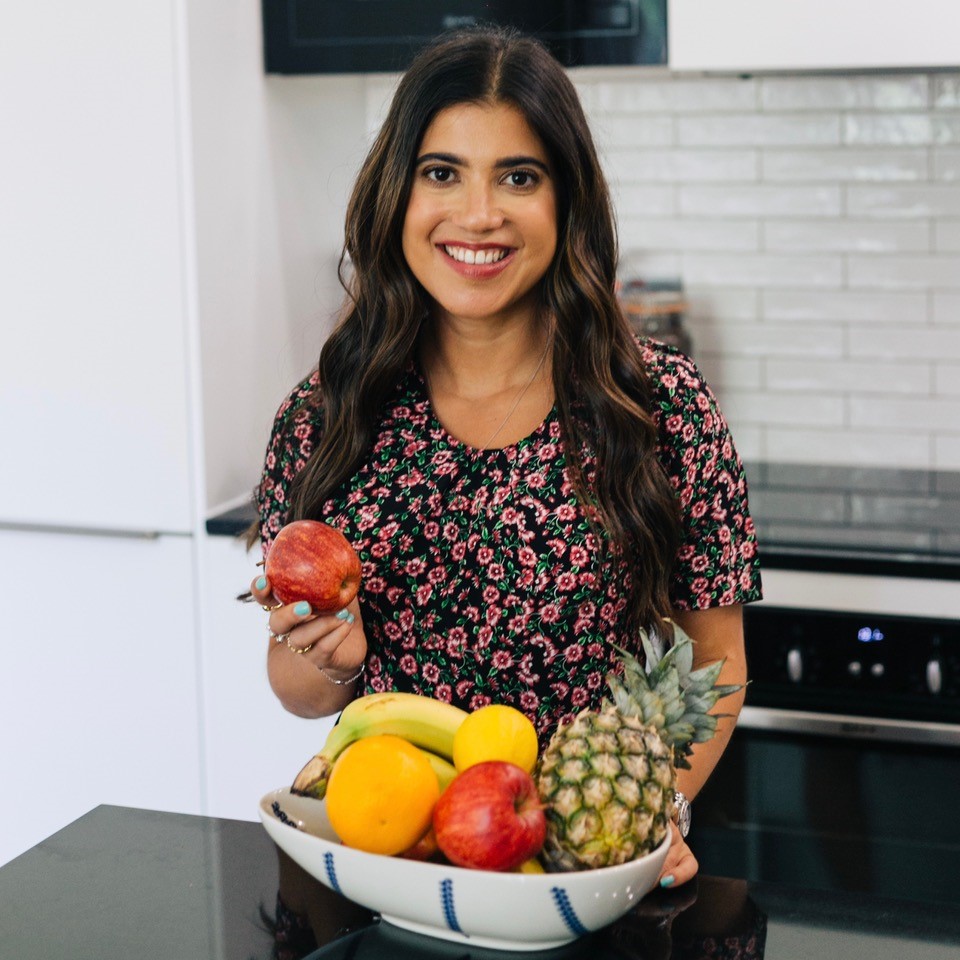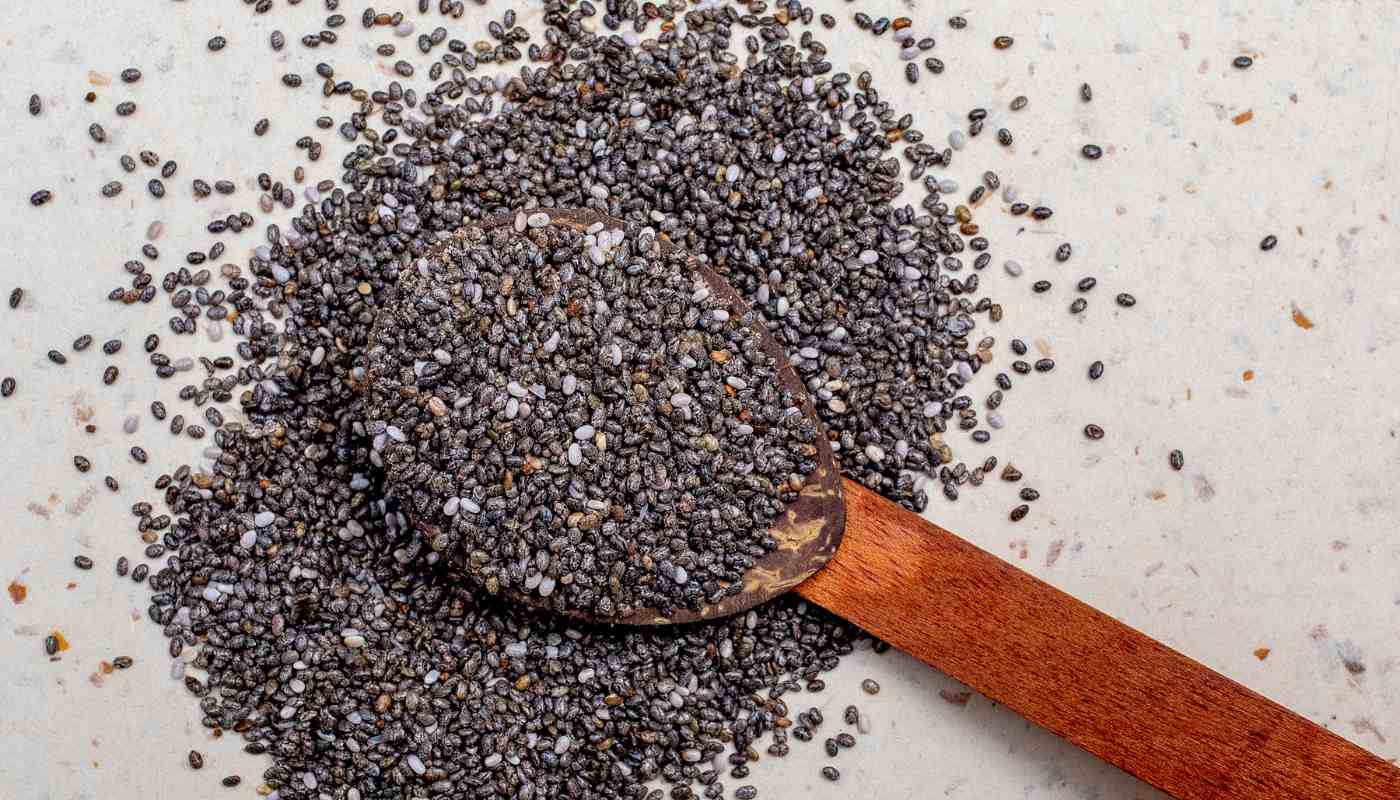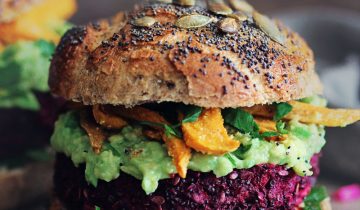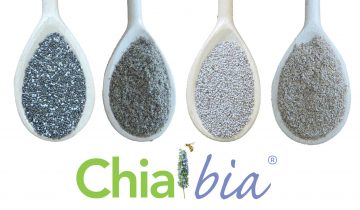4 Health Benefits of Chia Seeds
Eli Brecher, a registered nutritionists talks us through what the health benefits are of Chia Seeds
Chia seeds are small black or white seeds that come from the plant Salvia hispanica L, native to Central America. While chia seeds may be small in size, they pack a huge punch when it comes to fibre, protein, antioxidants and a type of healthy fat known as Omega 3 (ALA). These nutrients are essential for supporting a multitude of functions within the body, from heart health and digestive health to blood sugar management. As well as being nutritional powerhouses, chia seeds are a versatile ingredient, whether using Whole Chia or Milled Chia, as they do not have a distinctive flavour.
1. High in Fibre
Just one serving of chia seeds (15g) offers around 5.4g of fibre. Fibre is important for a healthy digestive system and can help protect against bowel cancer. Fibre can help lower cholesterol levels in the body and is also helpful for weight management and glycaemic control (regulation of blood sugar levels). Consuming any fibre-rich foods can help keep you feeling full, making you less likely to overeat at your next meal or graze throughout the day. In addition to this, chia seeds can absorb up to 12 times their weight in liquid and expand in your stomach, increasing the feeling of satiation.
2. Rich in Omega 3
Chia seeds are one of the richest plant-based sources of omega-3 fatty acids. These are a type of essential healthy fat, meaning it cannot be made by the body so must be obtained through the diet. Chia seeds contain a type of omega-3 called alpha-linolenic acid (ALA). Including ALA-rich foods in your diet can lower your risk of heart disease. One serving of chia seeds contains more than twice the daily recommended intake of ALA.
3. Packed with Protein
As a good source of plant-based protein, chia seeds can a good option for those seeking to lose fat and gain muscle. This is because eating a diet high in protein can help manage hunger and appetite (protein keeps you full), thus reducing cravings and limiting the overall intake of calories consumed. Chia Bia whole and milled chia seeds are 22% protein and offer all nine essential amino acids (the building blocks of protein), making them a high quality protein source.

4. Loaded with Antioxidants
Chia seeds are packed with antioxidants, which protect their fats from going rancid. When ingested, antioxidants help fight free radicals, which can be harmful to cells and can contribute to ageing and diseases such as cancer. Antioxidants promote tissue repair and can help protect the skin cells from ultraviolet rays and environmental damage. One of the specific antioxidants found in chia seeds is caffeic acid has anti-inflammatory effects (fights inflammation), while another, chlorogenic acid, may be helpful for reducing blood pressure.
How to Include Chia Seeds in the Diet
Given that chia seeds do not have a strong flavour, if any, they are an incredibly versatile ingredient. They can easily be incorporated into all sorts of sweet or savoury dishes. You can add chia seeds to baked goods, breads and crackers to increase their nutritional profile – just remember they soak up liquid so you’ll want to adjust the quantity of liquid, depending on the recipe.
Try stirring chia seeds into salad dressings, blending it into smoothies or making a chia pudding by soaking chia seeds in milk overnight and adding any flavours you like, such as cinnamon or vanilla. Their ability to absorb liquid makes them useful for thickening sauces or even as a vegan egg substitute in baking. You can also add Milled chia to baking such as Banana Oat Pancakes.
Summary
On the whole, chia seeds offer a plethora of health benefits, from the protein and fibre content, to their antioxidants and omega-3 (ALA). Chia Bia offer a range of seed blends which are both versatile and incredibly nutritious Including chia seeds in any meal of the day is a great way to boost nutritional intake and there are endless ways to incorporate these seeds into the diet.
https://www.healthline.com/content-series/fresh-food-fast/
References
Kurutas EB. (2016). The importance of antioxidants which play the role in cellular response against oxidative/nitrosative stress: current state. Nutr J. 15(1):71. https://www.ncbi.nlm.nih.gov/pmc/articles/PMC4960740/
Liu Z, Fu J, Shan L, Sun Q, Zhang W. Synthesis, preliminary bioevaluation and computational analysis of caffeic acid analogues. Int J Mol Sci. 2014 May 16;15(5):8808-20. https://pubmed.ncbi.nlm.nih.gov/24857914/
Martínez-Cruz O, Paredes-López O. (2014). Phytochemical profile and nutraceutical potential of chia seeds (Salvia hispanica L.) by ultra high performance liquid chromatography. J Chromatogr A.;1346:43-8. https://pubmed.ncbi.nlm.nih.gov/24811150/
Onakpoya IJ, Spencer EA, Thompson MJ, Heneghan CJ. The effect of chlorogenic acid on blood pressure: a systematic review and meta-analysis of randomized clinical trials. J Hum Hypertens. 2015 Feb;29(2):77-81. https://pubmed.ncbi.nlm.nih.gov/24943289/
Ullah R, Nadeem M, Khalique A, Imran M, Mehmood S, Javid A, Hussain J. (2016). Nutritional and therapeutic perspectives of Chia (Salvia hispanica L.): a review. J Food Sci Technol. 53(4):1750-8. https://www.ncbi.nlm.nih.gov/pmc/articles/PMC4926888/
Vuksan V, Jenkins AL, Brissette C, Choleva L, Jovanovski E, Gibbs AL, Bazinet RP, Au-Yeung F, Zurbau A, Ho HV, Duvnjak L, Sievenpiper JL, Josse RG, Hanna A. (2017). Salba-chia (Salvia hispanica L.) in the treatment of overweight and obese patients with type 2 diabetes: A double-blind randomized controlled trial. Nutr Metab Cardiovasc Dis. 27(2):138-146. https://pubmed.ncbi.nlm.nih.gov/28089080/
Wei J, Hou R, Xi Y, Kowalski A, Wang T, Yu Z, Hu Y, Chandrasekar EK, Sun H, Ali MK. The association and dose-response relationship between dietary intake of α-linolenic acid and risk of CHD: a systematic review and meta-analysis of cohort studies. Br J Nutr. 2018 Jan;119(1):83-89. https://pubmed.ncbi.nlm.nih.gov/29355094/
Eli Brecher is a London-based AfN Registered Associate Nutritionist (ANutr) with a 1st Class Honours Degree in Nutrition and a recipe developer on Instagram @EliBrecherNutrition. Having lived with Crohn’s all her life, Eli understands that having a healthy gut is fundamental to our overall wellbeing. With a clinic on Harley Street and online, Eli’s mission is to help people transform their gut health, optimise their nutrition and elevate their quality of life.

Eli’s undeniable passion for the wellness and nutrition industry has seen her firmly cement herself as one of the industry’s leading recipe developers, working with high profile brands on the supermarket shelves, delivering corporate nutrition talks and designing the menus at London’s top boutique fitness studios.
Instagram: @elibrechernutrition Website: www.elibrecher.co.uk







 No products in the cart.
No products in the cart.